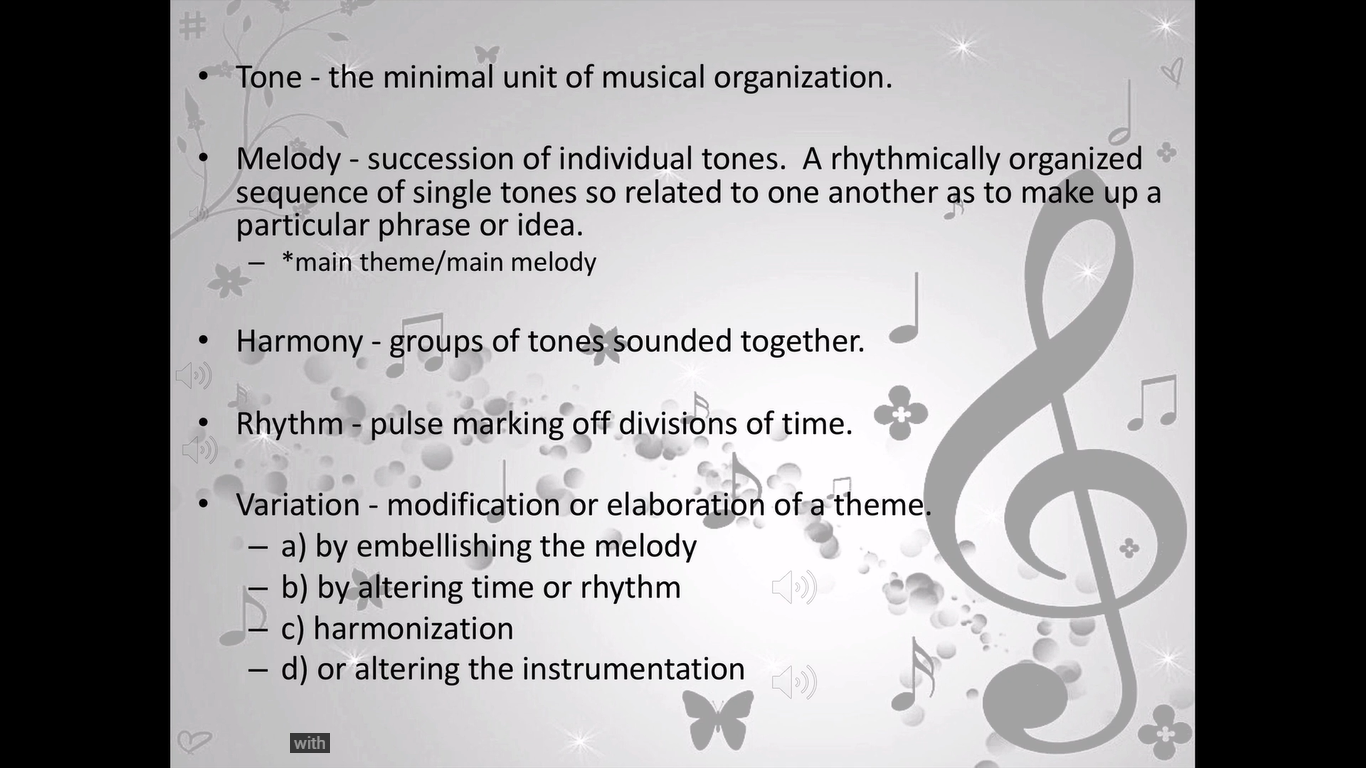What are the definitions of tone, melody, harmony, rhythm, and variation in music?

Understand the Problem
The question is asking about key musical concepts such as tone, melody, harmony, rhythm, and variation. These terms define fundamental elements of music theory and composition.
Answer
Tone: unit of music. Melody: sequence of tones. Harmony: groups of tones. Rhythm: time pulse. Variation: theme modification.
The definitions are:
- Tone: Minimal unit of musical organization.
- Melody: Sequence of individual tones forming a rhythmic phrase or idea.
- Harmony: Groups of tones sounded together.
- Rhythm: Pulse marking off divisions of time.
- Variation: Modification or elaboration of a theme through embellishing the melody, altering time or rhythm, harmonization, or changing instrumentation.
Answer for screen readers
The definitions are:
- Tone: Minimal unit of musical organization.
- Melody: Sequence of individual tones forming a rhythmic phrase or idea.
- Harmony: Groups of tones sounded together.
- Rhythm: Pulse marking off divisions of time.
- Variation: Modification or elaboration of a theme through embellishing the melody, altering time or rhythm, harmonization, or changing instrumentation.
More Information
These elements are foundational in music composition, providing the structure and emotional expression in musical works.